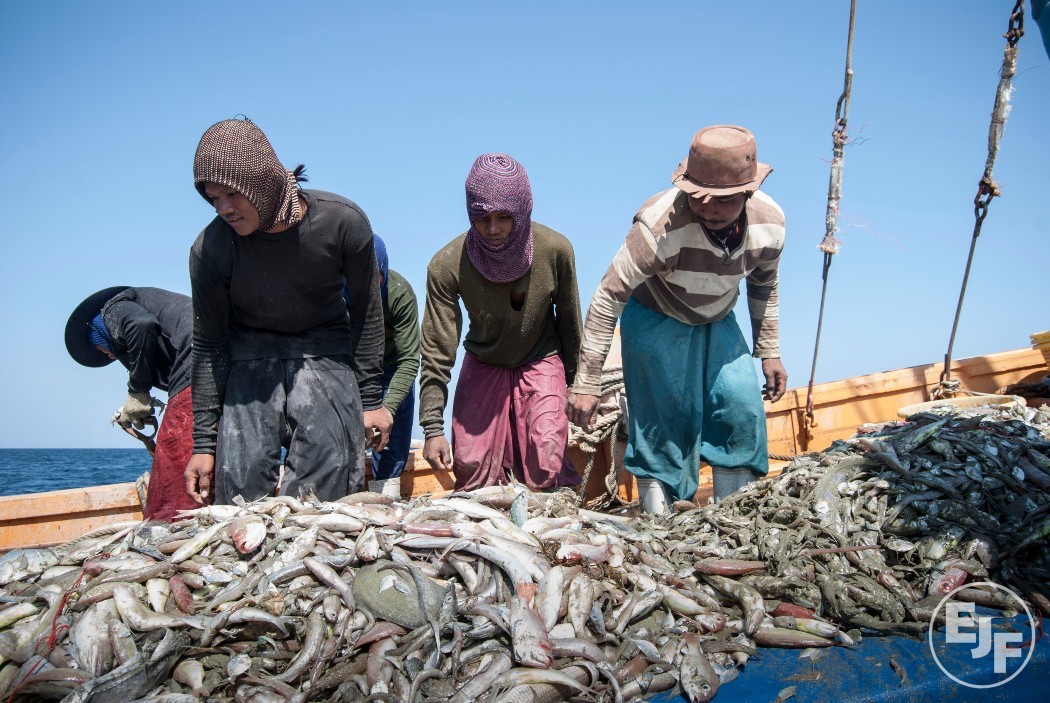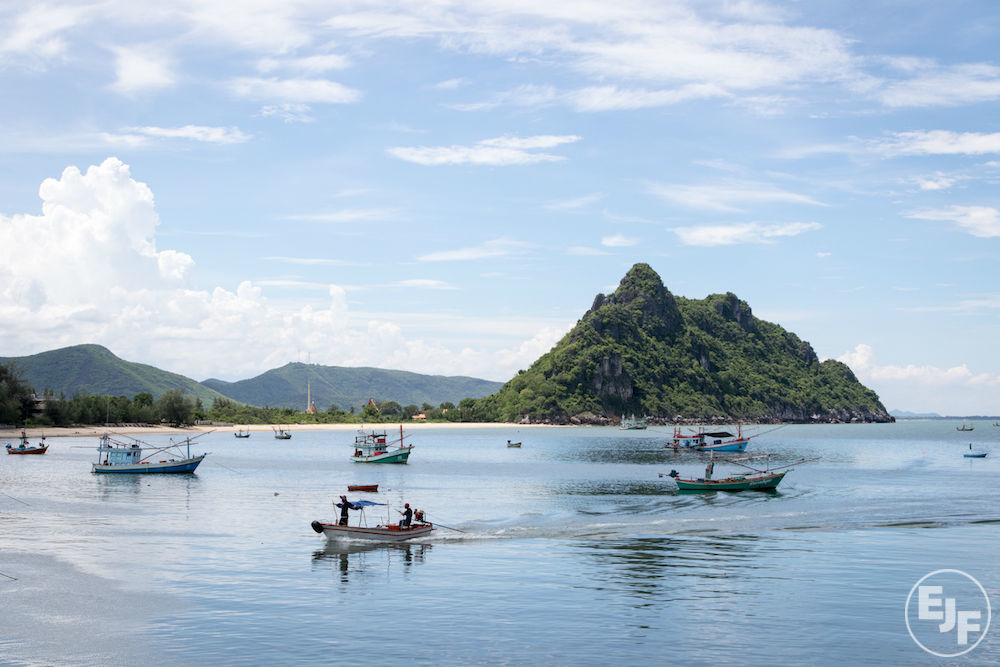
Thailand is first in Asia to ratify international standards for work in fishing industry
Today, Thailand became the first country in Asia to ratify the Work in Fishing Convention C188, which sets basic decent standards for work in the fishing industry. This shows important commitment and leadership for the region, says the Environmental Justice Foundation (EJF), which has worked closely with the Royal Thai Government on these issues since 2015. But there are improvements to be made, the NGO warns, and a recent proposition that 16-year-olds be allowed to work on vessels may lead to further abuse.
Thailand has made strides forward in eradicating the illegal fishing and human rights abuse that has plagued its fishing industry, EJF can attest. The country’s monitoring, surveillance, and enforcement capabilities have shown good progress, including innovative efforts such as the use of covert patrol vessels to catch vessels fishing illegally in Thai waters. This progress has been recognised by the EU, and the country’s ‘yellow card’ trade warning over illegal fishing was lifted earlier this year.
However, EJF has also found lingering shortcomings that prevent Thailand’s fishing industry from becoming truly ethical and sustainable. For instance, inspections are not always rigorous, and EJF has identified cases of captains signing on behalf of crew to confirm they were given breaks, and migrant crews’ payment documents and ATM cards being held by the vessel owner on shore.
The Royal Thai Government is currently considering allowing captains to employ 16-year-olds on fishing vessels. While several measures to protect against abuse have been put forward – such as only allowing Thai nationals that are relatives of the captain, and forbidding them to work at night – permitting 16-year-olds to work in an industry prone to abuse could be a step backwards, says EJF.
The protective measures are good in theory, but enforcement would be difficult, if not impossible, says EJF. “Thailand is to be applauded for taking the significant step of ratifying C188,” says EJF’s Executive Director Steve Trent. “But the country still needs to work on several of its measures to truly eradicate illegal and unethical fishing. In this case, how are inspections going to improve so that the authorities can be 100% sure that no 16-year-old apprentices are forced to work at night? Such a retreat by the Ministry of Labour could also lead to uncertainty amongst international seafood buyers, who will obviously want to ensure that children are not being exploited as part of their supply chain.”
EJF also points to the fact even industry representatives have reservations. Mongkol Sukcharoenkana, chairman of the National Fishing Association of Thailand – the main body representing the interests of commercial vessel owners in Thailand, was quoted this week as saying that hiring under 18s would be a step backwards despite being "technically" allowed within the C188 framework.
For a country that has a history of being a progressive force for combatting child labour, this could be a disappointing move in the wrong direction.
Notes for the editor:
Watch EJF’s investigative film Thailand’s Seafood Slaves and read the report
Images available on request
- EJF has worked in Thailand since 2013 with initial investigations into the shrimp and trash fish industries. Close collaboration with the Royal Thai Government now encompasses work across several agencies including Department of Fisheries, Command Centre for Combatting Illegal Fishing, Ministry of Labour, Department of Labour Protection and Welfare, and Marine Department.
- Thai seafood exports of 1.4 million tonnes in 2016 were worth $5.8 billion (UN Comtrade).
- Catch per unit effort – a measure of how productive or depleted a fishery is – dropped by 94% in the Gulf of Thailand between 1961 and 2016 and by 69% in the Andaman Sea between 1966 and 2016.
- Thailand has a fleet of a proximately 11,000 commercial fishing vessels (Department of Fisheries, January 2018).
- Thailand’s PIPO network numbers 32 centres across Thailand’s 22 coastal provinces. There are a further 19 Forward Inspection Points which help share the workload of the main PIPO centres.
The Environmental Justice Foundation is an international non-governmental organisation working to protect the environment and defend human rights. EJF is a charity registered in England and Wales (1088128). www.ejfoundation.org
Contacts:
Daisy Brickhill - EJF Press & Communications Coordinator
daisy.brickhill@ejfoundation.org
Tel: +44 7871 946 911

